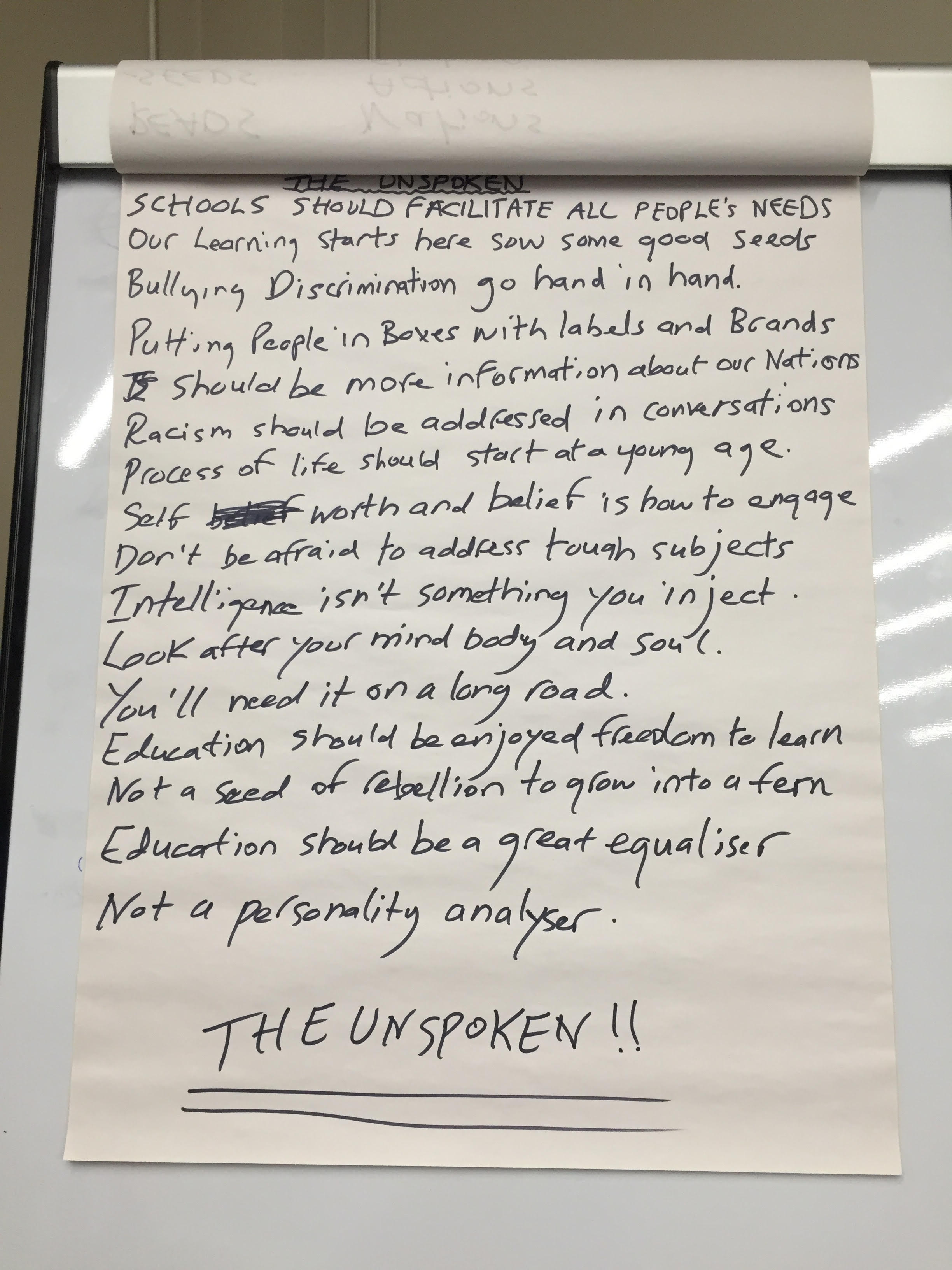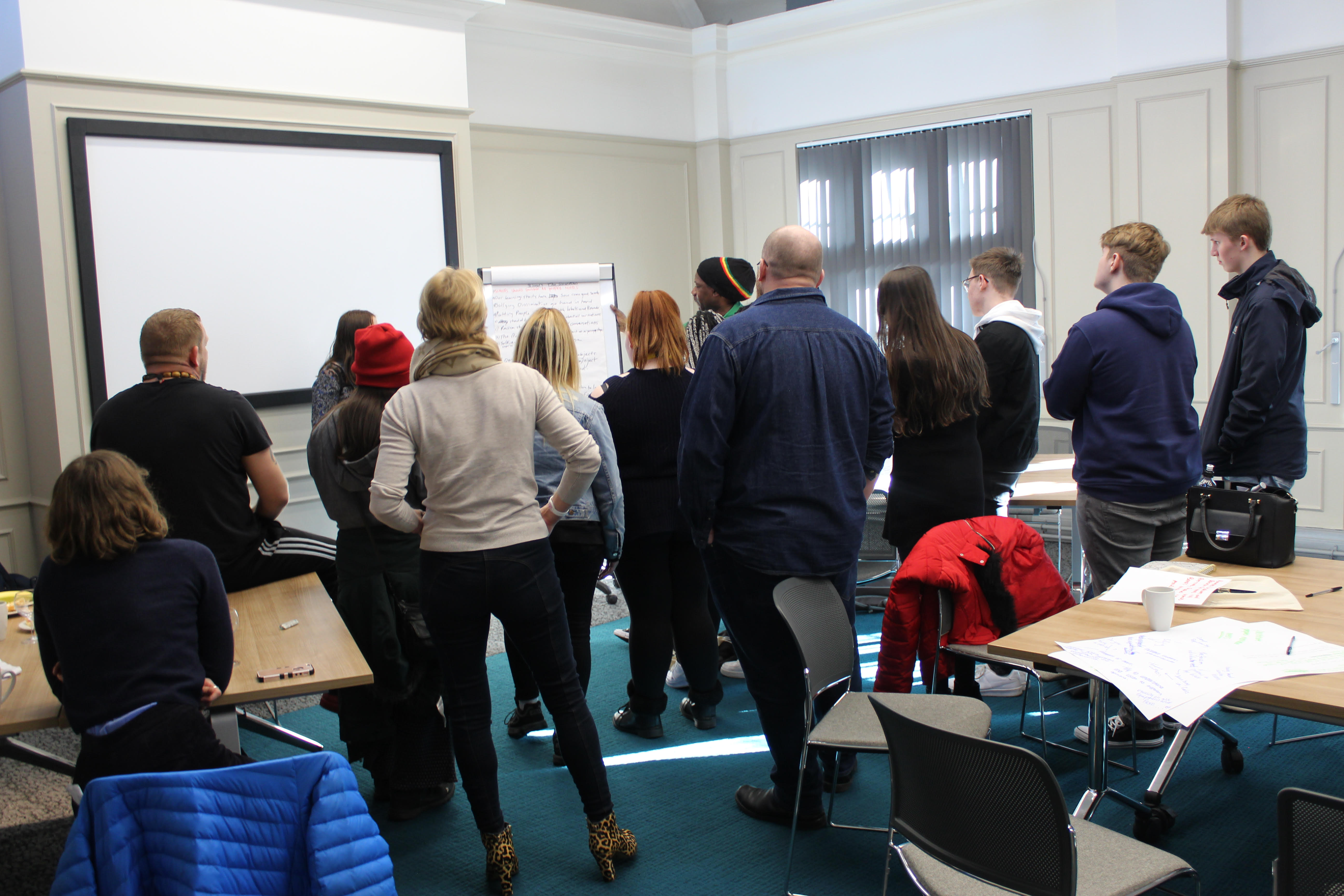Looking Back Better: The future forum on education
Posted on 04 Jun 2020 Categories: #thehullwewant, Blog, Coronavirus
by Alex Talbott
Students challenge a restrictive curriculum: why education should be more than academic.
The subject of education is perhaps the area where we are naturally most willing to accept the authority and ideas of young people – at least it should be. It is their day to day: they are in it. Sometimes, though, when you are ‘in’ something or close to it, thinking about it in radically new ways is tricky. In Hull, our education provocation came from Lucy Hollis, education manager at GROW, a charity that works in schools and communities to promote mental well-being, physical health and a more hands-on relationship with the natural world.
From the get go, the discussion around education went beyond existing structures to a wider questioning of the values that drive our current education system. Lucy stated that ‘an estimated one in three students in every classroom have a diagnosable mental health problem’. A recent YouGov poll commissioned by the Wildlife Trust highlighted a gradual loss of contact and connection with nature during childhood. Shockingly, 1 in 5 children do not know eggs come from animals. GROW’s work is grounded in the idea that these outcomes are related. They have created a programme that unites food education and mental and physical health, with the goal ‘To connect; to ourselves, each other, and the world around us’.

To facilitate the break-out groups and get to grips with what sixth formers see as the challenges for education, Lucy was joined by school leader Steve Hoey and The Beats Bus Crew, an initiative that uses hip-hop to get young people to speak out about their hopes for the future. The group produced ‘The Unspoken’, a rap underpinned by the sense that many of the problems in our current system are not voiced. Without acknowledging these issues, how can we tackle them? At its core, the rap questions what school ‘success’ looks like and who it is serving. It calls out the curriculum’s failure to address racism and the UK’s colonial history and emphasises that boxing young people in undermines their self-worth and fosters a narrow understanding of what ‘intelligence’ looks like. The rap ends: ‘Education should be a great equaliser, not a personality analyser.’ The inclusive nature of their presentation saw Emma Hardy MP and Bishop Alison White join with the rest of the audience in accompanying the young people.
Their lyrics hit hard, going to the core concern of a ‘sausage machine’ education system with a narrow and restrictive curriculum. Without challenge, this system disconnects initiatives such as Lucy’s, the Beats Bus and a new social enterprise founded by Steve Hoey called Inclusion Bridge. This works to reconnect young people with an education that suits their need to flourish and grow not just their intellect but their wider learning and way of being in the world.
Since the outbreak of coronavirus, the markers of academic success have been hit hard. The certainty of exams and a clear path to the next stage are no longer a given. More worryingly, the critical role schools play outside the academic has come starkly into view. Without free school meals, the support of staff, and access to technology, the most disadvantaged students have been worst hit. Many schools have been striving to maintain their role as ‘equalisers’, providing opportunities for all and support far beyond the academic, but the education system cannot achieve this alone. In a post-covid environment, tackling the educational gap it will have opened up further will be a key challenge. The mental health impacts of a loss of support, access to friendships, purpose and a route through adolescence could be devastating.
Still, positive news, progress and initiatives in the wake of coronavirus can be found. Emma Hardy is running a project to get old laptops to young people through TimeBank in Hull as a way to counter digital exclusion. The work of the Beats Bus in Hull is growing. Supported by the Paul Hamlyn Foundation and many Hull partners, the Beats Bus team have launched the 2021 ‘Hip Hop School of Excellence’, an alternative schooling provision that acknowledges and celebrates the legitimacy of different ways of educating and supporting young people to think and speak with confidence and skill.

In Hull and beyond, we see positive moves towards a more inclusive education system, and initiatives to counter educational inequality. A greater provision of these kinds of initiatives, coupled with a commitment to listen to students talking about their experience of this time, and what they need to get back on track, may be vital for building back better.
Alex Talbott is Programme Manager for The Orwell Youth Prize
Want to keep up-to-date with our coronavirus coverage? Sign up to our newsletter.
Posted on 04 Jun 2020 Categories: #thehullwewant, Blog, Coronavirus
